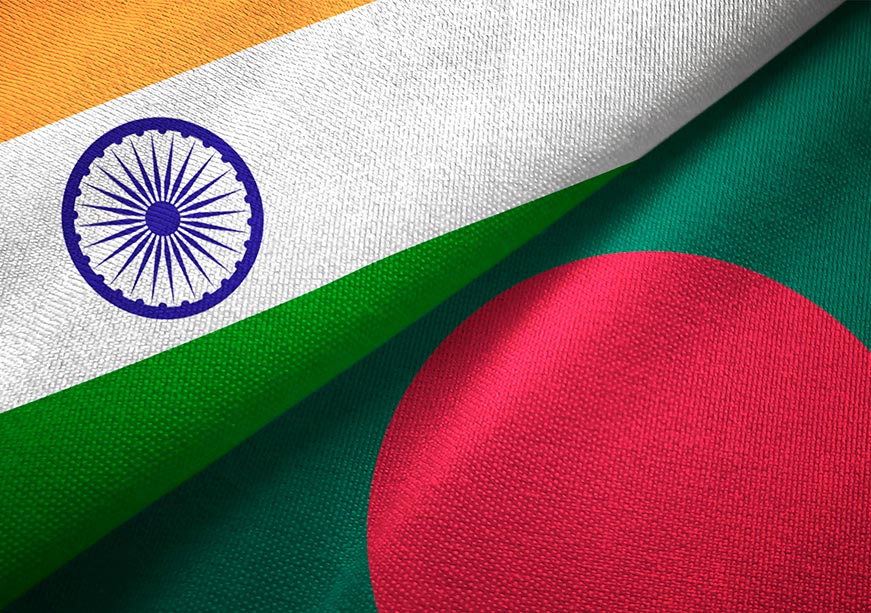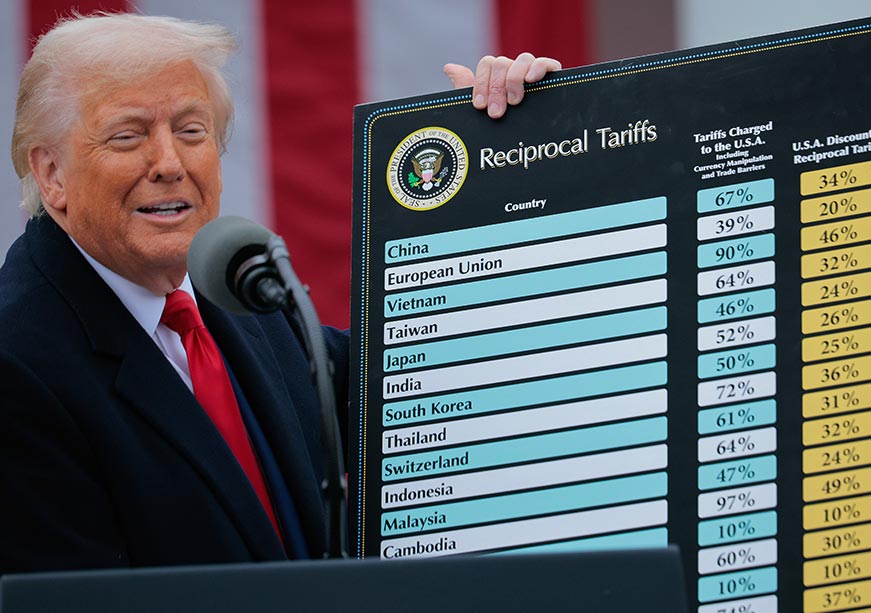
Image Source: Getty
Experts and observers have spent considerable time and resources studying the footprint of major global powers, such as China, Russia, and the United States (US), on the African continent and predicting their next moves. While a similar focus on the ‘middle powers’ operating in Africa has been few and far between, it becomes imperative to attach similar importance to their actions and ambitions in the continent. These states, from the United Arab Emirates (UAE) and Saudi Arabia to South Korea and India, have increasingly emerged as key bilateral partners, aid providers, and strategic investors in Africa. The primary among them has been Türkiye, a country aiming to step up its trade with Africa to US$50 billion, witnessing a tenfold increase since the turn of the century.
Erdoğan’s Africa Policy employs a mix of security cooperation, economic investment, diplomatic outreach (with total Turkish missions in Africa reaching 50), and cultural exchanges.
Türkiye considers Africa a fertile ground for increasing its leverage over regional rivals like the UAE. Since his first term as Türkiye's Prime Minister in 2003, Recep Tayyip Erdoğan has invested a lot of personal and political capital in increasing Türkiye’s strategic footprint in Africa. Erdoğan’s Africa Policy employs a mix of security cooperation, economic investment, diplomatic outreach (with total Turkish missions in Africa reaching 50), and cultural exchanges. However, often overlooked, but a vital aspect of Türkiye’s approach has been its strategy of acquiring control and strategic investments in several African ports.
By focusing on ports as epicentres of its outreach in Africa, Türkiye hopes to achieve a series of objectives: control of maritime trade routes due to strategic locations of the ports, expanding its presence in some of the world’s most contested regions like the Horn of Africa and the Red Sea, competing with global and regional rivals, and rekindling its Ottoman-era ties through cultural and historical connections, among many others.
Türkiye’s engagement with African ports can be divided into three broad categories based on the size of investment and their strategic importance:
- Direct influence/control: These are ports where Türkiye either maintains active operational control or has significant investments that influence its operation.
- Mogadishu Port, Somalia: In 2013, the Albayrak Group, a private Turkish company, was given a 20-year concession to operate and manage the port. Economically, the port is a key facilitator in Türkiye’s trade with Somalia, which it sees as the gateway to East Africa. On the strategic front, the port acts as a buffer to the TURKSOM, Türkiye’s largest overseas military facility, which trains Somalian security forces and conducts anti-piracy operations. However, critics have alleged the Turks of engaging in criminal practices, ranging from bribery of government officials to money laundering. Somalia’s internal committees have also evidenced that the Albayrak group follows predatory practices and creates trade barriers against several clients.
- Suakin Port, Sudan: Once an Ottoman-era port and naval base, Türkiye sees its engagement as a revival of historical ties. In 2017, both countries signed a US$4 billion deal for its redevelopment project and a 99-year lease to revive Suakin as a tourism hub for Hajj-bound pilgrims. It offers Türkiye a strategic position in the Red Sea, notably overlooking the Bab el-Mandeb Strait. The port’s dual-use (civilian and military) potential reinforces Turkish influence against its regional rivals—the UAE and Saudi Arabia—in their region of influence. Despite this, the lack of a stable Sudanese government (due to the 2019 regime change and the 2023 civil war) has been a significant roadblock in realising Türkiye’s ambitions with the port. Stalling the project has forced Türkiye to look elsewhere in the neighbourhood.
- Ports of Libya: Since Türkiye’s intervention in the Libyan conflict in 2020, Türkiye’s influence extends to a permanent naval presence off the Libyan coast. In addition to a direct shipping line with the Port of Misrata, the Turkish Navy operates out of key Libyan ports, including Abu Sitta and Sidi Bilal, further strengthening its strategic foothold in the Mediterranean. Increasing its economic heft in the region, Türkiye and the Government of National Accord (GNA) of Libya signed a treaty in 2019 to establish an Exclusive Economic Zone (EEZ) in the Mediterranean Sea. In the same vein, several intelligence reports have also revealed that two of the largest Turkish contracting companies, Albayrak Group and Yildirim, have established respective strategies to gain control over Libyan ports and airports.
- Indirect influence: Türkiye’s engagement with these ports manifests via partnerships or soft power initiatives.
- Ports of Djibouti: During President Erdoğan’s visit to Djibouti in 2015, the two countries signed a comprehensive maritime cooperation agreement. Although the deal was only valid for five years and did not achieve all it had set out to, it laid down the framework for Turkish companies and their prospects to manage and operate the ports of Djibouti in the future. Türkiye primarily aims to increase its trade with East Africa via the port and, in the process, develop it as a key logistics hub in the region. In late 2024, Tiryaki Agro, one of Türkiye’s largest agricultural companies and a major customer of Djibouti’s port facilities, shared their plans to invest significantly in the Damerjog Multipurpose Port, targeting a capacity of handling 15,000 tons of dry bulk per day.
- Ports of Egypt: A definitive agreement could never be signed due to deteriorating bilateral ties since 2013. However, in 2012, the two countries signed the Ro-Ro (roll-on/roll-off) transit trade agreement. It allowed Turkish trucks to arrive at Egyptian ports, like Port Said and Alexandria, and transit overland to Red Sea ports for further shipment. Recent efforts have been underway to revitalise the Ro-Ro maritime transport line to enhance trade exchanges between the two, as over 800 countries are said to be operating in Egypt. In addition, in a landmark move, a Transfer of Technology (TOT) arrangement was signed between Alexandria Shipyard (ASY) and Türkiye’s Sedef Shipyard in 2024 to enhance Egypt’s shipbuilding capabilities.
- Potential influence: The final piece in Türkiye’s Africa puzzle has been its growing engagement with other regional players to expand its economic and diplomatic influence. A case in point is Kenya, where in 2022, Türkiye provided the Kenya Ports Authority (KPA) with a modern tugboat equipped with firefighting capabilities worth over US$16 million. Similarly, with increased infrastructure investments across sectors in countries like Senegal and Tanzania, Türkiye’s forays into their ports would not be far-fetched.
DP World secured a 30-year concession to develop the Berbera Port in Somaliland, which competes directly with the Türkiye-controlled Mogadishu Port.
While Türkiye may not possess the capital might of some of its rivals, it has employed a balance of soft diplomacy, cultural relations, and military presence to expand its influence in select strategic locations in Africa. It is important to place Türkiye’s engagement in the background of other ‘middle powers’ operating in the continent. For instance, the UAE’s multinationals like DP World and Abu Dhabi Ports Group have secured long-term deals cum concessions for the management of key African ports from Dakar to Dar es Salaam. DP World secured a 30-year concession to develop the Berbera Port in Somaliland, which competes directly with the Türkiye-controlled Mogadishu Port.
Nonetheless, the question remains whether such a farsighted and calculated engagement will remain sustainable for Türkiye and the host African countries, or will the local perception of Türkiye’s investments turn into a fear of a Turkish ‘development trap’, akin to the Chinese style of investments, over time.
Yuvvraj Singh is a Research Intern at the Observer Research Foundation
The views expressed above belong to the author(s). ORF research and analyses now available on Telegram! Click here to access our curated content — blogs, longforms and interviews.




 PREV
PREV


